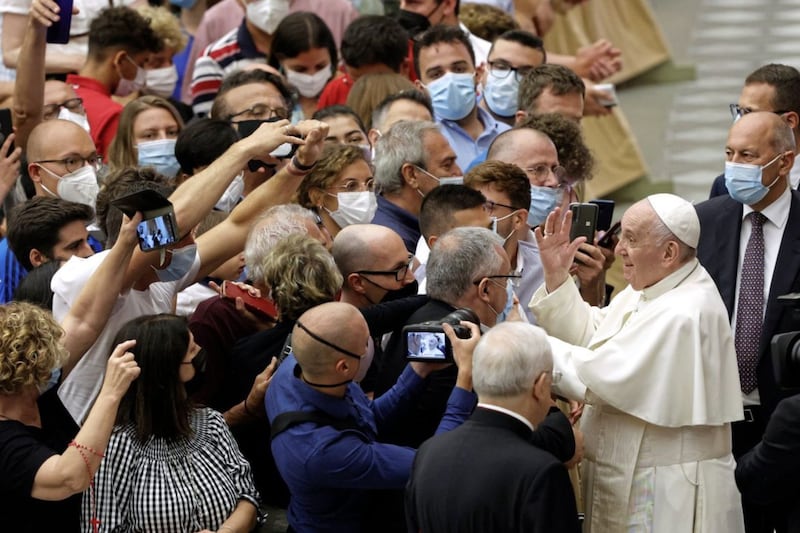I GAVE one of my younger relatives a puzzle for Christmas, and as she opened it by the fire, her eyes lit up and her face began to glow.
She was happy to see the snowy farmyard scene full of life with cats, dogs, cows, sheep, a large family and a huge Christmas tree. Hours later, her initial excitement had turned to intense focus as she put the pieces together to make it all fit.
Watching her, it struck me how Christmas gives us time to reflect on the year which has passed, helping to piece together our lives and build a better future for everyone.
After a few days enjoying the celebrations with friends and family, I sat down to catch up on some of the newspapers. The headline on one article had an overwhelmingly upbeat tone: "Record job creation year by multinationals in Republic."
Yet the Society of St Vincent de Paul experienced a different situation, receiving "more calls for help nationally than ever before" as people struggled for the basics like heating and food. I was puzzled.
I turned to the 'reviews of 2021' in print and online. I often look forward to learning who Time magazine decides is the 'Person of the Year'. In 1927, the first person to be recognised was Charles Lindbergh, who completed the first solo transatlantic flight.
In 1982, it went to 'The Computer'. More recently, in 2013 Pope Francis won the award.
This year, the magazine decided that the richest man in history, Elon Musk, deserved the title. From a young age, Elon's talents were clear, and his mother soon called him "Genius Boy".
The South African has shaped the world we live in, his commercial success starting with the world's first internet mapping device. He then reimagined the global banking system by creating a company which eventually became part of PayPal.
More recently, the article notes: "His start-up rocket company, SpaceX, has leapfrogged Boeing and others to own America's spacefaring future. His car company, Tesla, controls two-thirds of the multibillion-dollar electric-vehicle market it pioneered and is valued at a cool $1 trillion."
But I find it difficult to take as a model a man who unashamedly smokes weed on camera, uses medication to get to sleep and who brushes aside safety measures for his employees in order to reach company targets.
I'm also bemused that the richest man of all time managed to pay almost no tax in recent years despite receiving billions of dollars of government funding to get his ambitious plans off the ground.
Still puzzled, I found myself returning to the text I heard on Christmas Eve, which spoke of a different attitude to ambition caused by God's gift to us in the birth of his Son.
"God's grace has been revealed. It has taught us that what we have to do is to give up everything that does not lead to God, and all our worldly ambitions; we must be self-restrained and live good and religious lives, while we are waiting in hope for the blessing which will come with the Appearing of the glory of our great God and Saviour Jesus Christ."
St Paul's words in the first reading of the vigil Mass seemed to cut through the confusion. They presented me with a clear opportunity for growth if I wanted a genuine model for life.
In the video accompanying the Time article, billionaire Musk was asked, "Which living person do you most admire?"
He responded: "I admire anyone who is making a positive contribution to humanity, anyone who is doing things that are useful."
But I wonder whether we should we only admire people who are "contributing" and how we decide whether a person is "useful"?
On many levels, the crib reminds me that God works especially in ordinary human life with all its frailty and uncertainty. Years later, the Son of God revealed that each of us is made in the image and likeness of God. We are all special parts of God's plan.
Jesus showed us that we are loved by God not because of what we do, but simply because we are his children. This gives each of us infinite value and dignity, inspiring and driving us to share this divine love with others.
As a new year begins, may Jesus guide us to piece together the puzzle of our lives, making us firm in faith, joyful in hope, and active in charity.
Dr Brian Wilson grew up in Ballymena, Co Antrim, completed undergraduate studies in Chemistry at Imperial College London and holds a PhD in Organic Chemistry from the University of Oxford.








